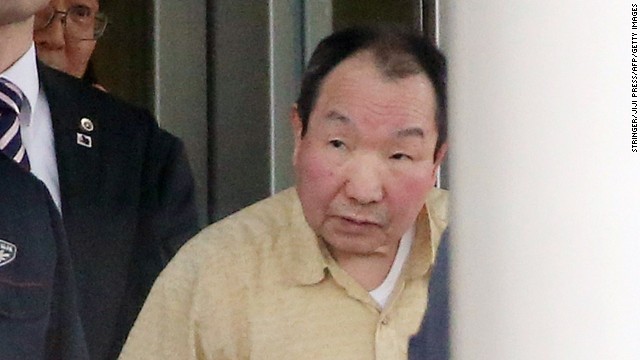I reserve the right to be wrong.
So this is a thing. Iwao Hakamada is now going to trial again. I have read in moderate outsider's detail about the legal system in Japan, and the fact that it is a festering pile of shit basically designed to prosecute, not establish truth.
That makes Japan's legal system the very antithesis of the ideal of innocent until proven guilty. You're guilty until the police get a confession out of you ( and by the way, have fun trying to get a defence lawyer, as they can't sit in on police interviews to advise you ).
The more I have learned about Japan over the years the more batshit crazy the country has seemed, and not in an endearing way anymore. Where previously I was drawn to this metropolitan, civilised, powerful and fascinating country on the far side of Eurasia, now I am horrified by an officialdom that is comfortable with no accountability for the systems it sustains, and thus the wanton inhumanity of those systems.
And I'm not the only one. Hiroyuki Okon is an economist in Japan whose views align with the Austrian School and libertarianism, which to me just blows the fucking idea that somehow Japan is unique out of the water. It's a country of people who wanna eat, poop, exchange with one-another, create, and live with dignity, and that's the end of the god-damned news.
So, a dude has a chance at a retrial, and God knows, maybe even being freed if he's found innocent. In prison he is addressed by number, not name. All because the finger was pointed at him in 1966 for the murder of a factory owner, that owner's wife, and their two children. One wonders how the accusation came about. Well, he confessed. Then a trio of judges sentenced him to death.
Why did he confess if he, and apparently others too, are now saying he didn't do it? Does it have anything to do with the insane practice mentioned in my 2nd paragraph above. Wikipedia's article on the man states;
So is everything about the criminal justice system in Japan, as da kids say these days, full of shit? Did the guy even do what he's in jail for? How many others have died for crimes they didn't commit? How many more human beings have to be made sacrificial lambs for the mincer of Japanese judicial process?
Any hope here?
So this is a thing. Iwao Hakamada is now going to trial again. I have read in moderate outsider's detail about the legal system in Japan, and the fact that it is a festering pile of shit basically designed to prosecute, not establish truth.
That makes Japan's legal system the very antithesis of the ideal of innocent until proven guilty. You're guilty until the police get a confession out of you ( and by the way, have fun trying to get a defence lawyer, as they can't sit in on police interviews to advise you ).
The more I have learned about Japan over the years the more batshit crazy the country has seemed, and not in an endearing way anymore. Where previously I was drawn to this metropolitan, civilised, powerful and fascinating country on the far side of Eurasia, now I am horrified by an officialdom that is comfortable with no accountability for the systems it sustains, and thus the wanton inhumanity of those systems.
And I'm not the only one. Hiroyuki Okon is an economist in Japan whose views align with the Austrian School and libertarianism, which to me just blows the fucking idea that somehow Japan is unique out of the water. It's a country of people who wanna eat, poop, exchange with one-another, create, and live with dignity, and that's the end of the god-damned news.
So, a dude has a chance at a retrial, and God knows, maybe even being freed if he's found innocent. In prison he is addressed by number, not name. All because the finger was pointed at him in 1966 for the murder of a factory owner, that owner's wife, and their two children. One wonders how the accusation came about. Well, he confessed. Then a trio of judges sentenced him to death.
Why did he confess if he, and apparently others too, are now saying he didn't do it? Does it have anything to do with the insane practice mentioned in my 2nd paragraph above. Wikipedia's article on the man states;
Hakamada was interrogated and, in August 1966, was arrested based on a confession and a pair of pajamas he owned that featured a tiny amount of blood and gasoline. According to his lawyers, Hakamada was interrogated a total of 264 hours, as many as 16 hours a session, over 23 days to obtain the confession. They added that he was denied water or bathroom breaks during the interrogation. [ Japan Times article ]
So is everything about the criminal justice system in Japan, as da kids say these days, full of shit? Did the guy even do what he's in jail for? How many others have died for crimes they didn't commit? How many more human beings have to be made sacrificial lambs for the mincer of Japanese judicial process?
Any hope here?

Comments
Post a Comment